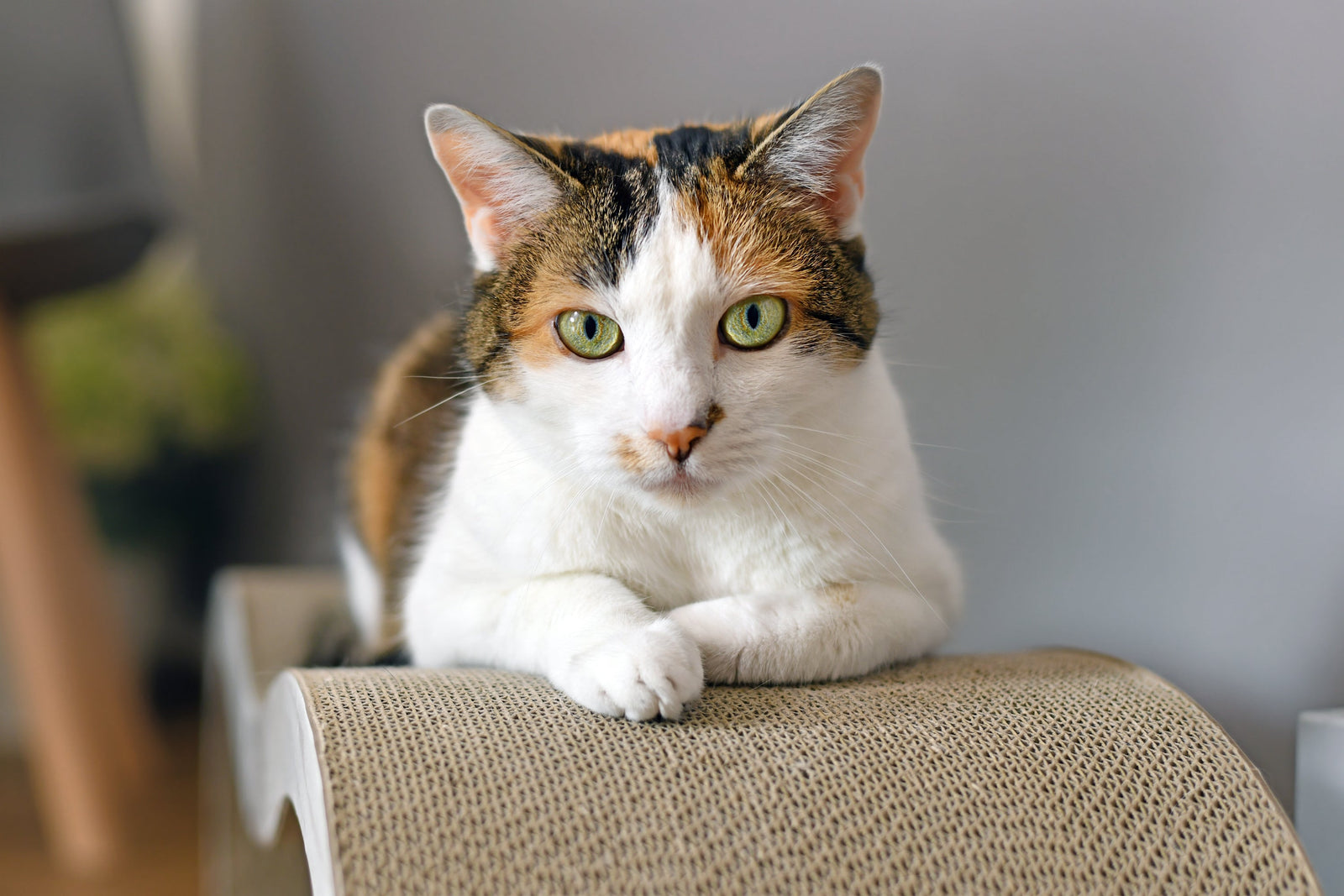
Do your cat’s paws make them feel down? Do they look irritated, red, or swollen? Are they soft to the touch and cause your cat to walk around with a limp? There can be many reasons why yourcat’s pawpads are irritated and causing them discomfort. Luckily, ourPrettyLitter Kitty Expurrts took a deep dive into some of the most common causes and remedies of your cat’s pad paw irritations.
Nailed It
Nail problems won’t typically happen if you consistently groom and trim your cat’s nails. However, with neglected nail maintenance, their nails can become ingrown, painful, and likely to provoke major infections.
Dewclaws are the claws attached to the short digits located on the inside of a cat’s front legs, near their wrists. Since dewclaws are non-weight bearing, they don’t touch the ground and aren’t worn down by walking like your cat’s other claws. Because of this, ingrown nails are common on paws with dewclaws.
Common remedies for ingrown nails are consistent trimming and antibiotics. Some extreme cases of an ingrown nailmay call for surgical removal. The best way for you to avoid any of these nail problems is to provide your cat with regular nail maintenance and grooming.
Something Strange
Just like ingrown nails, foreign objects can impact your cat’s paws in irritable and painful ways. Cats that spend more time outside are more likely to get a foreign object stuck in their cat pawthan indoor cats. It could be anything from a small rock to a twig or a tiny shard of broken glass. If you notice your cat is limping as well as chewing and licking their swollenpaw, there may be something strange stuck in their paw. The best course of action is to take them toa veterinary partner or pet rehab for foreign object extraction and possible antibiotic prescription.

Cuts, Scrapes, Bruises & Burns
Cats love to run around and explore! So naturally, their cat ear’s and paws touch many different terrains such as carpets, tile floors, gravel, grass, mulch, sand, and pavement. Because of this, cuts, scrapes, and bruises along their paws are very likely to happen. Cleaning their injuries and cuts with an antibacterial solution is essential. If their cuts are deep, then a visit to the vet is recommended. Deep cuts can hide potential foreign objects within the wounds and may then cause an infection. It's not uncommon for a vet not to stitch up a torn pad paw as they don’t hold stitches well. Injured cats are recommended to wear protective socks or booties to prevent any direct strain that could open and infect their wound.
Tired of your home smelling like you have a cat?
15% off PrettyLitter
Try it today Use code: PRETTYBLOG
Sometimes the rough terrain doesn’t necessarily cut your cat’s paw pad but instead causes them to get dry and cracked. Excessive paw licking, rough terrain, and dry air can cause cracked paws. If this happens, over-the-counter paw balms work wonders for your cat paws, and just like a cut paw, dressing them in protective socks or booties will help heal and protect their worn-down paws.
Hot surfaces like pavement and gravel may burn your cat’s paws if they get too hot from the sun. A burned paw looks swollen, red, and blistered. This is a severe medical concern and your cat should be taken to a vet for proper attention and care.
Reactions, Infections & More
Just like us, cats can experience all kinds of allergies. If you see alarge lump appear on a cat overnightor your cat is experiencing an allergic reaction in their paws,the paws will be incredibly itchy. Be on the lookout for excessive licking, biting, nibbling, and chewing around the paws to achieve some relief from the itching. Cats who excessively lick their paws are highly encouraged to be taken to a vet for an allergic reaction evaluation. They may prescribe your cat antihistamines or a new diet to alleviate symptoms.
Infections, both bacterial and fungal, can afflict your cat's paws. Hot and humid environments can provoke fungal infections like yeast infections between their paws. Sometimes the naturally occurring bacteria on your cat’s paws grow out of hand and cause bacterial infection to flare up. Either way, any of these infections can be treated with topical creams, wipes, washes, and antibiotics prescribed by their vet similar to acat eye inflammation.
Another more uncommon dermatological paw issue is an inflammatory disease known as Feline Plasma Cell Pododermatitis. This is when footpads become infiltrated by white blood cells known as plasma cells. The precise cause is unknown, but this disease can affect cats of any age, gender, and breed. It can also occur on any of your cat’s paws but are most likely to occur on the larger, central pads on their front and back feet, also known as the metatarsal and metacarpal pads. Many vet dermatologists believe that can be triggered by an allergic reaction or immune deficiency. Signs of this disease are swollen, scaly, ulcerate paws that are soft and quick to bleed. If your cat is showing signs of Feline Plasma Cell Pododermatitis, take them to their vet for an accurate diagnosis and proper treatment.
No matter the type of issue or irritation whether it comes from outside or different types of litter, a trip to the vet and the proper treatment can work wonders in making your cat’s following adventure way more pleasant on their paws!
Sources:
https://www.hillspet.com/cat-care/routine-care/how-to-care-for-cat-paw-pads
https://be.chewy.com/why-is-my-cats-paw-red-and-irritated/
https://www.viagenpets.com/common-paw-pad-issues/
https://cat-world.com/what-is-the-dewclaw-on-cats/
https://wagwalking.com/cat/condition/pododermatitis

Follow Us